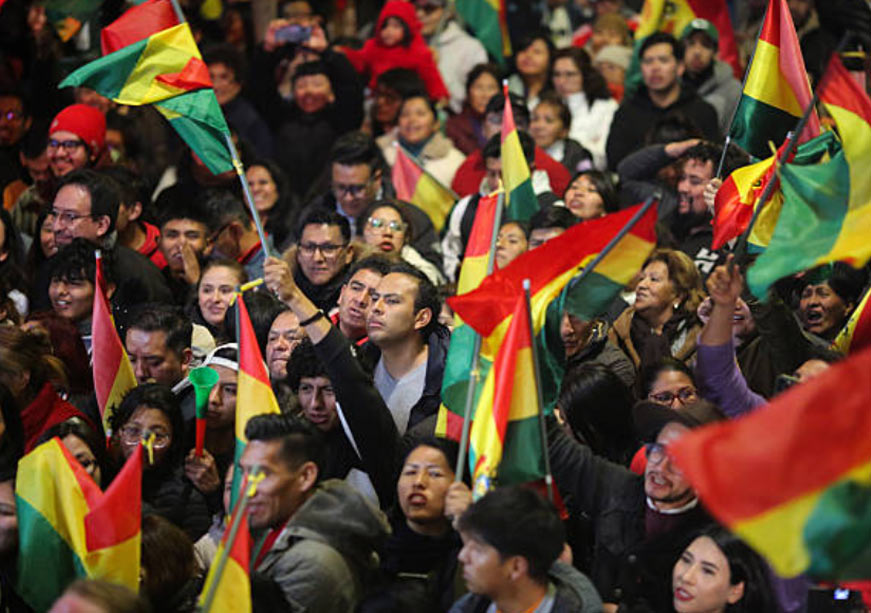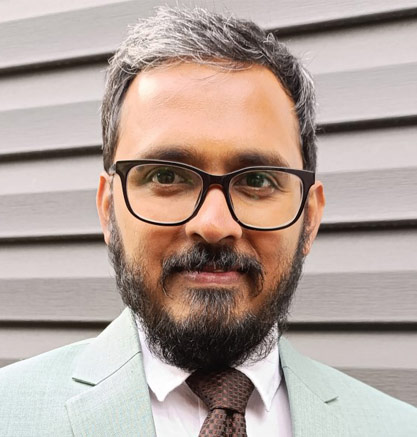-
CENTRES
Progammes & Centres
Location
As Bolivia elects Rodrigo Paz, its move away from socialism could inspire a wider regional recalibration toward centrist governance.

Image Source: Getty Images
The Movement for Socialism (known by its Spanish-language acronym MAS), which dominated Bolivia’s political landscape for the past two decades, has been summarily rejected by voters in the country’s recent elections. Its presidential candidate received a paltry 3.2 percent of the vote in the first round of elections, a stunning blow after winning four elections with more than 50 percent of the vote since 2005. In the first round of elections held on 17 August, centre-right Rodrigo Paz and right-wing Jorge ‘Tuto’ Quiroga surged ahead, promising change and a departure from the MAS’s left-wing rule that has culminated in utter crisis. On 19 October, Bolivians opted for the centrist Paz and his running mate Edmand Lara, a former police officer-turned-whistleblower. Paz received 54.61 percent of the vote in the second round, comfortably ahead of Quiroga’s 45.39 percent.
Paz took most analysts and pollsters by surprise. A 14 August poll, conducted just three days before the first round, showed Paz in seventh place with 7.5 percent—behind four other candidates, undecided voters, and the null vote; yet, he obtained 32.06 percent in the first round. Paz’s popularity is owed to multiple factors, but perhaps the most important is this: he is a centrist who veers slightly to the right—just enough to convince voters that he will not continue the now-disastrous legacy of the MAS, yet not as far right as Quiroga, who served as vice president to a former military dictator. Paz’s campaign slogan, “capitalism for all,” his evangelical Christian vice president Lara, his constant denunciations of corruption, and his popularity on social media platforms like TikTok all add to his allure.
Paz’s popularity is owed to multiple factors, but perhaps the most important is this: he is a centrist who veers slightly to the right—just enough to convince voters that he will not continue the now-disastrous legacy of the MAS, yet not as far right as Quiroga, who served as vice president to a former military dictator.
On victory day, Paz took a conciliatory tone, noting that “It is with love that the homeland is resolved, not with hatred or division.” He added that “Ideology does not feed us, but rather the right to work, strong institutions, legal security, respect for private property, and certainty for the future.” Quiroga promptly conceded defeat on the night of the election—a sign of maturity, much needed for Bolivia’s democracy. Yet, some question whether a conciliatory approach will yield sufficient results, given the extent of Bolivia’s economic crisis.
While the ballot box may help bring about change, voting does not solve a country’s problems, especially when the crisis is multifaceted. Bolivia’s fragile economy has been rocked by double-digit inflation, plummeting natural gas exports, and rising imports of diesel and gasoline—leading to fuel scarcity, sinking currency reserves, a shortage of dollars, ballooning debt of US$43 billion, and a forecast of recession for the next three years. The data reveal a stark picture: inflation stood at 23.32 percent in September 2025, foreign currency reserves have dropped 93 percent since January 2022, about 90 percent of diesel and 50 percent of the country’s gasoline is now imported, and fuel subsidies cost the state roughly US$2 billion. The currency crisis, dollar scarcity, and price controls have caused a massive surge in cross-border smuggling between Bolivia and Peru, with people struggling to overcome food and fuel shortages.
Bolivia’s fragile economy has been rocked by double-digit inflation, plummeting natural gas exports, and rising imports of diesel and gasoline—leading to fuel scarcity, sinking currency reserves, a shortage of dollars, ballooning debt of US$43 billion, and a forecast of recession for the next three years.
This is the difficult reality that Paz now inherits. There are, unfortunately, no quick solutions, and there will be no honeymoon period for the new president. Paz hopes to formalise the black market by legalising smuggled goods and plans to offer amnesty to Bolivians who officially declare their stashed dollars. At his final campaign rally, Paz avowed, “There will be no more smuggling; everything will be legal.” Paz will have to make tough and quick decisions once he takes office on November 8.
Bolivia’s turn to the centre-right also heralds a new era of foreign policy. The old MAS rhetoric of anti-imperialism that drew Bolivia into China’s economic orbit may be replaced by a rightward shift that favours countries such as the United States and Argentina. Although New Delhi is about 15,000 km away, Bolivia may court India as a potential investor in its mineral sector. India-Bolivia trade peaked in 2022 at US$2.8 billion, 97 percent of which comprised Bolivian exports of gold to India. Notably, India opened its embassy in Bolivia in March 2025.
The old MAS rhetoric of anti-imperialism that drew Bolivia into China’s economic orbit may be replaced by a rightward shift that favours countries such as the United States and Argentina.
From a regional perspective, some may point to Bolivia’s rejection of socialism as the beginning of a right-wing wave in Latin America. Chile and Colombia will also hold elections in November 2025 and May 2026, respectively, and in both cases, the incumbent left-wing parties could lose at the ballot. In Honduras, the centrist Salvador Nasralla of the Liberal Party is currently leading in the polls. Peruvians will head to the polls in April 2026, but politics is so fragmented and chaotic in the Andean nation that it is anybody’s guess as to who will be the next president. Yet, it would be premature to label changes in voting preferences as a rightward shift across Latin America. If anything, Bolivia is showing the region that there is a way out of the left-right binary—a centrist, moderate government that may be the safest, most viable choice.
Hari Seshasayee is a Visiting Fellow at the Observer Research Foundation and a co-founder of Consilium Group.
The views expressed above belong to the author(s). ORF research and analyses now available on Telegram! Click here to access our curated content — blogs, longforms and interviews.

Hari Seshasayee is a visiting fellow at ORF, part of the Strategic Studies Programme, and is a co-founder of Consilium Group. He previously served as ...
Read More +